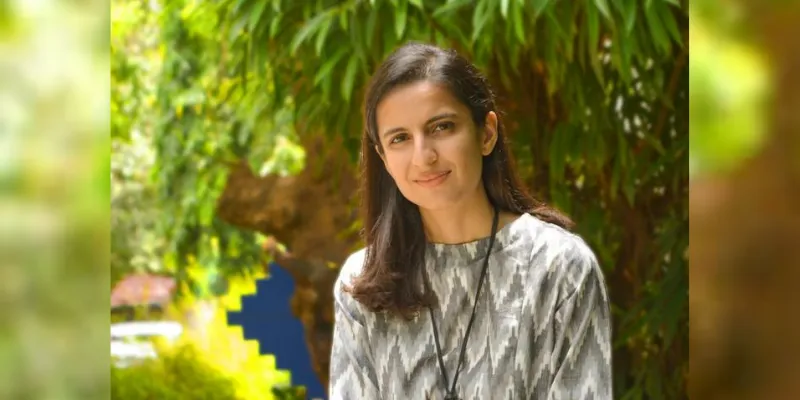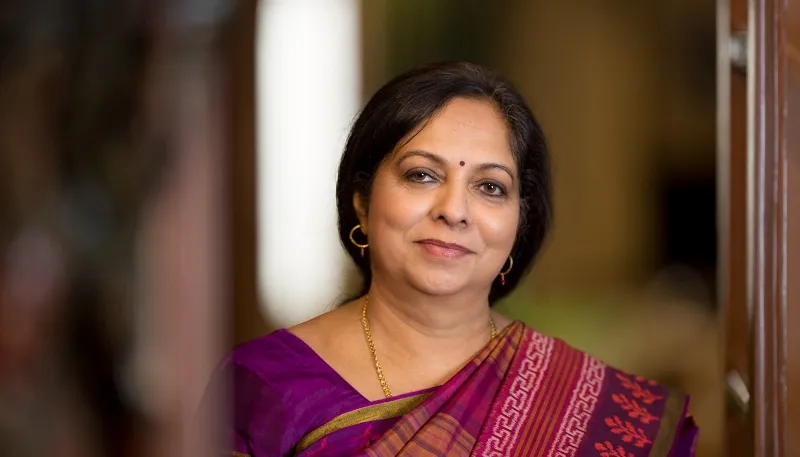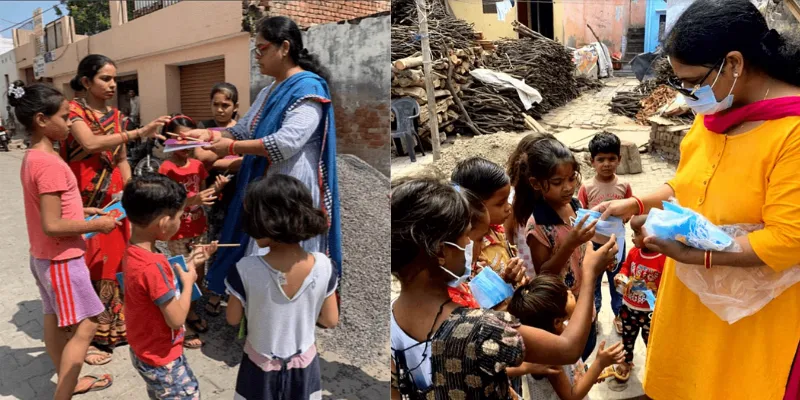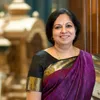Meet 5 women who are ensuring quality education for underprivileged children in India
From ensuring quality education in government schools to offering scholarships to meritorious underprivileged children, these women are changing the face of education in India.
Education is universally recognised as a basic human right. However, economic and social challenges can act as a barrier, especially for children in poverty-stricken families, which can adversely impact the prosperity of the country.
When a large number of children fail to explore their capabilities, India loses on potential future leaders, innovators, entrepreneurs, and educators to take the growth forward.
But, several entrepreneurs, educators, philanthropists, and changemakers have come forward to rectify this situation, trying to impart quality education to children in underprivileged families and communities.
We list five women who are investing their time in ensuring quality education in government schools and underprivileged children who have had no access to formal education.

Radha Goenka
Radha Goenka
Radha Goenka values quality education. An alumnus of the University of Pennsylvania, she noticed that most parents spend their hard-earned money to send their children to private schools rather than government schools that are free.
This is often because parents want their kids to be fluent in the English language, which is an enabler to help children consume more educational content on the internet and provide an edge when it comes to future job prospects.
Understanding these motives, Radha started the Pehlay Akshar (meaning the first step) programme as part of the RPG Foundation of which she is the Director. It was launched as an independent NGO last year.
The organisation has developed a unique curriculum aimed at imparting English education with creative thinking and independent learning, and has partnered with more than 2,000 government schools.
The social entrepreneur has impacted more than two lakh children as of September 2019.

Kumari Shibulal, Founder of Sarojini Damodaran Foundation
Kumari Shibulal
Kumari Shibulal is the founder and chairperson of the Shibulal Family Philanthropic Initiatives (SFPI). Started by offering scholarships to two students in 1999, the organisation today supports underprivileged children across various levels of education through programmes like Ankur, which is a residential scholarship programme for school children; Saathiya for students who aspire for a career in hospitality; and an incubation centre for social enterprise called Edumentum.
Its flagship programme Vidhyadhan helps students pursue further academic studies after completing school. A highly competitive scholarship, eligible students must secure at least 95 percent in class 10 examinations and have a family annual income less than Rs 2 lakh.
In the last two decades, it has supported more than 17,000 students and churned 230 doctors and 940 engineers. The founder claims that all the beneficiary students have uplifted their family out of BPL status.
Ashwini Doddalingappanavar
Hailing from a village in Kuballi, Karnataka, Ashwini Doddalingappanavar braved all odds. Her parents did not want to invest in her education and tried to get her married but Ashwini approached the Deshpande Foundation to learn computer, English, and soft skills.
At present, she is working as an Implementation Associate with Meghshala Trust in Bengaluru, and visits government schools to help teachers adopt technology.
She visits around 25 schools per month, working closely with teachers and train them in the pedagogy of digital lessons. Her continued help has been essential after the COVID-19 outbreak as teachers are now being required to take classes online.
Uma Pathak

Uma distributing stationeries and masks to children
Inspired by her father, who was a school principal, Uma Pathak went from teaching in Aligarh for free to starting the SPS Foundation in 2018. The educator wanted to uplift underprivileged children by providing access to quality education.
Besides educating the children about hygiene, sanitation, and nutrition, she also took charge of several renovation projects to upgrade government schools and colleges to impart quality education.
Noting that most parents fear sending daughters to pursue higher education in the cities, Uma is solving this problem by improving educational facilities in villages.
After the outbreak of COVID-19 in India, she also distributed masks, sanitisers, and gloves to economically challenged communities in Aligarh, Hyderabad, Chennai, and Bengaluru.
The organisation’s activities including the initiatives amidst the pandemic are funded by her brother and Paytm founder Vijay Shekhar Sharma.

Amudhavalli Ranganathan
Amudhavalli Ranganathan, daughter of famous entrepreneur CK Ranganathan, is leveraging her privilege to address access to education. In 2014, she set up Canopo International, a pre-school now renamed as CK Wonder Kidz.
She also works closely with the CK Group of Educational Institutions, including a matriculation school and CBSE schools.
During the pandemic, she aired classroom sessions on local channels and helped students of government schools in Cuddalore, Tamil Nadu, access to online classes during the lockdown. She also started mental healthcare initiatives where parents are connected with counsellors over phone while students can attend webinars.
Now, Amudhavalli is working through CK Group of Educational Institutions to set up a model for the New Education Policy in India.
Edited by Saheli Sen Gupta










